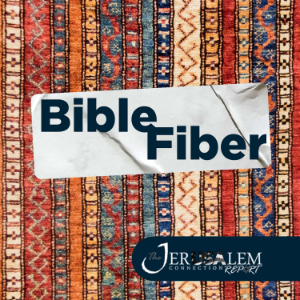
Bible Fiber
Religion & Spirituality Podcas
Tired of scripture study guides that leave you wanting more substance? Discover a resource that offers comprehensive teaching and deep insights into the prophetic message.Have you been avoiding the more challenging books of the Bible because they are hard to understand or apply to your life? Let Bible Fiber build your foundational knowledge about ancient Israel’s history and culture.
Welcome to Bible Fiber, where we are encountering the textures and shades of the biblical tapestry through twelve Minor Prophets, two reformers (Ezra and Nehemiah), and one priest in exile (Ezekiel). Along the way, we take pauses for minicourses on peoples of the Bible and ponder why the prophetic office ended. I am Shelley Neese, president of The Jerusalem Connection, a Christian organization devoted to sharing the story of the people of Israel, both ancient and modern.
You won't find another podcast so committed to teaching the parts of the Bible that get the least attention and also is constantly calling for prayers for the modern state of Israel during this moment of crisis.
Location:
United States
Description:
Tired of scripture study guides that leave you wanting more substance? Discover a resource that offers comprehensive teaching and deep insights into the prophetic message.Have you been avoiding the more challenging books of the Bible because they are hard to understand or apply to your life? Let Bible Fiber build your foundational knowledge about ancient Israel’s history and culture. Welcome to Bible Fiber, where we are encountering the textures and shades of the biblical tapestry through twelve Minor Prophets, two reformers (Ezra and Nehemiah), and one priest in exile (Ezekiel). Along the way, we take pauses for minicourses on peoples of the Bible and ponder why the prophetic office ended. I am Shelley Neese, president of The Jerusalem Connection, a Christian organization devoted to sharing the story of the people of Israel, both ancient and modern. You won't find another podcast so committed to teaching the parts of the Bible that get the least attention and also is constantly calling for prayers for the modern state of Israel during this moment of crisis.
Twitter:
@jerusalemreport
Language:
English
Contact:
8439255770
Email:
SRN@tjci.org
Ezekiel 47:13-48:35
Duration:00:06:56
Ezekiel 47
Duration:00:12:34
Ezekiel 45 and 46
Duration:00:11:59
Ezekiel 44
Duration:00:15:34
Back from Shiloh
Duration:00:07:56
Shavuot for the Goyim
Duration:00:10:23
Interview with Omri Toppol
Duration:00:27:33
Ezekiel 43
Duration:00:20:11
Bible Fiber: Ezekiel's Visionary Temple
Duration:00:14:10
Ezekiel 39
Duration:00:13:40
Ezekiel 38
Duration:00:12:44
Ezekiel 37
Duration:00:15:09
Ezekiel 35 and 36
Duration:00:15:35
Ezekiel 34
Duration:00:13:39
Ezekiel 33
Duration:00:15:13
Ezekiel 32
Duration:00:16:41
Ezekiel 31
Duration:00:11:37
Ezekiel 30
Duration:00:14:54
Ezekiel 29
Duration:00:16:54
Interview with Yair Levi
Duration:00:39:37